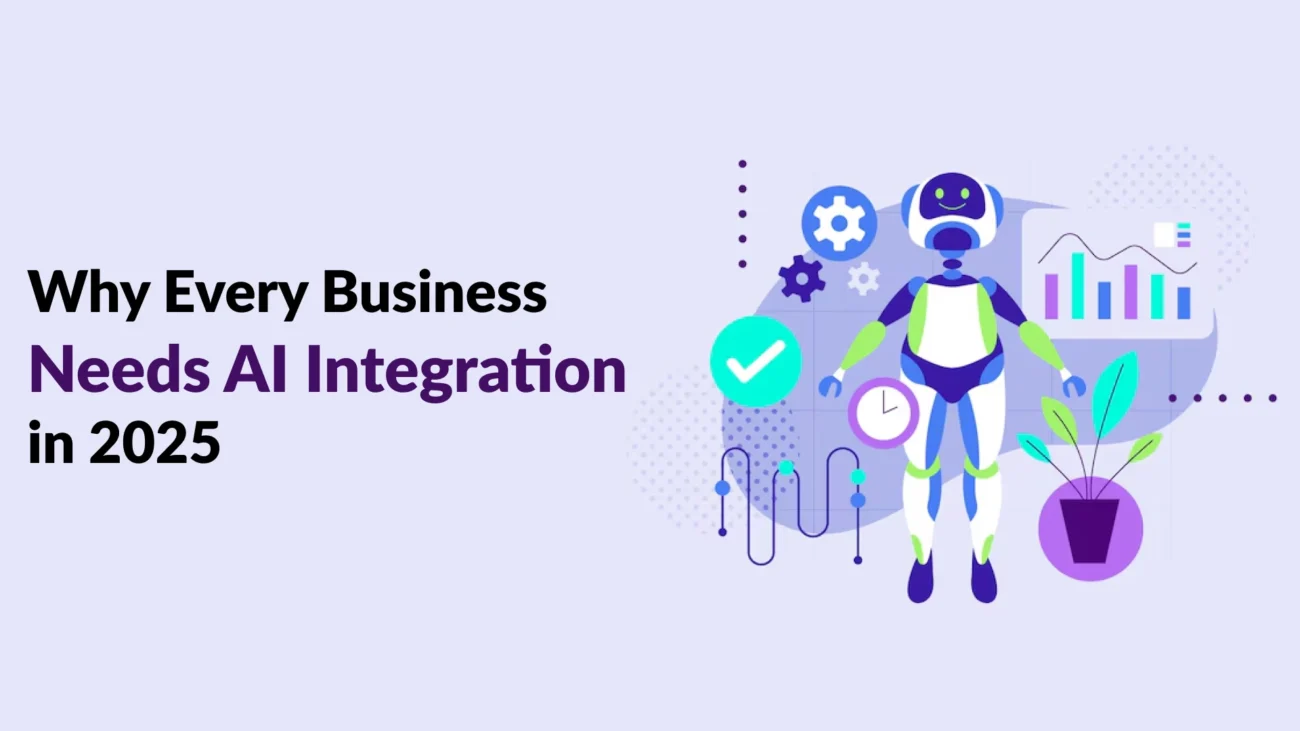As we enter a new era of technology, AI integration has become a cornerstone for sustainable business success. In 2025, artificial intelligence isn’t just a buzzword—it’s a competitive advantage. Whether you’re a small business owner or part of an enterprise strategy team, leveraging AI tools and smart technologies is no longer optional. From automating tasks to improving decision-making, AI is reshaping the future of work.
This blog explores why AI integration is essential in 2025 and how it empowers businesses of all sizes to innovate, scale, and stay ahead of the curve.
1. AI Integration Is Driving the Future of Work
The future of work is being shaped by AI-powered innovations that enhance productivity, streamline operations, and reduce human error. AI integration allows companies to:
- Automate repetitive tasks
- Analyze large datasets in seconds
- Provide 24/7 customer service through chatbots
- Improve forecasting and trend analysis
In 2025, businesses that adapt AI-driven workflows are outperforming those that rely solely on manual processes. AI is not here to replace humans but to augment capabilities, allowing teams to focus on high-level strategy.
2. How AI Integration Accelerates Digital Transformation
Digital transformation has become a top priority for businesses aiming to stay competitive in a rapidly evolving marketplace. AI is at the heart of this transformation.
By integrating machine learning algorithms, natural language processing, and predictive analytics, businesses can:
- Personalize customer experiences
- Detect anomalies before they become issues
- Make data-driven decisions faster
- Streamline supply chain and inventory management
This technological evolution positions AI integration as a key driver of efficiency, scalability, and agility—critical traits in the digital-first economy.
3. Key AI Tools for Companies in 2025
With a growing ecosystem of AI tools for companies, 2025 offers a wide range of smart business tools that cater to specific industry needs. Some of the most impactful AI tools include:
- CRM Automation Tools: AI-powered CRMs like Salesforce Einstein enhance lead scoring and client engagement.
- Predictive Analytics Platforms: Tools like IBM Watson and Google Cloud AI help businesses forecast trends and consumer behavior.
- Virtual Assistants: Integrated into operations, these reduce admin workload and improve response time.
- AI in Cybersecurity: These tools use AI to detect and neutralize cyber threats in real-time.
These innovations are designed to work in harmony with human intelligence—optimizing processes without compromising quality or creativity.
4. Machine Learning Solutions Enhance Decision-Making
Machine learning solutions are transforming how businesses approach data. With access to vast amounts of real-time data, machine learning models can:
- Detect patterns invisible to the human eye
- Optimize marketing and sales strategies
- Predict customer churn and buying behavior
- Monitor operational health in real-time
SMBs and large enterprises alike are using ML to make faster, smarter decisions. AI integration empowers companies to react proactively rather than reactively—shaping a stronger, more adaptable business model.
5. AI Integration Unlocks Smart Business Tools
Smart businesses in 2025 are powered by smart business tools—AI-driven platforms that simplify workflows, increase productivity, and reduce errors.
These tools include:
- AI-powered accounting software: Automates financial reporting and reduces bookkeeping errors
- HR Tech Tools: Use AI for talent acquisition, employee engagement, and performance analysis
- Inventory & Logistics Platforms: Predict demand and optimize delivery routes using real-time AI analytics
Integrating such tools helps businesses cut operational costs while improving service quality and team efficiency.
6. Real-World Benefits of AI Integration for SMEs
For small to medium business owners, AI integration is more accessible than ever. Cloud-based platforms and SaaS solutions have lowered the barrier to entry. Benefits include:
- Cost savings through automation and efficient resource allocation
- Improved customer service with AI chatbots and personalized support
- Faster decision-making based on real-time analytics
- Increased revenue through better targeting and product recommendations
Startups and entrepreneurs who adopt AI early gain a significant edge in crowded markets. These tools allow for leaner operations and quicker scalability.
7. Enterprise Strategy and AI Adoption
Enterprise strategy teams and CTOs must prioritize AI integration to remain relevant in 2025. Leading corporations are already building AI-first infrastructures to maintain market dominance.
Key strategies include:
- Developing AI Centers of Excellence
- Training teams in AI literacy and digital skills
- Partnering with AI consultants and vendors
- Aligning AI investments with long-term business goals
According to McKinsey, AI adoption can increase profitability by 25% over five years. For enterprises, this is not just an innovation—it’s a necessity.
8. Challenges and Ethical Considerations
While AI integration offers immense value, it also presents challenges:
- Data privacy concerns
- Bias in AI algorithms
- Workforce displacement fears
- Cost of implementation
Addressing these issues requires a balanced, transparent approach. Businesses must invest in ethical AI practices, inclusive data training models, and ongoing staff development.
Using AI tools responsibly helps build trust and ensures long-term sustainability.
9. Preparing Your Business for the AI-Powered Future
To successfully integrate AI in 2025, businesses should:
- Evaluate internal processes that can benefit from automation
- Identify the right AI tools for companies in your industry
- Train your team to work alongside AI
- Partner with AI experts or consultants
- Monitor, test, and optimize AI systems regularly
Whether you’re a digital transformation consultant or an SME owner, adopting AI integration is the first step toward future-proofing your operations.
Conclusion
In 2025, AI integration is not a luxury—it’s a strategic imperative. From boosting efficiency to unlocking new growth opportunities, AI is driving the future of work and redefining business technology trends.
Regardless of size or sector, businesses that embrace AI will thrive, while those that don’t risk falling behind. The time to act is now.
Let AI help you lead the future—not chase it.


